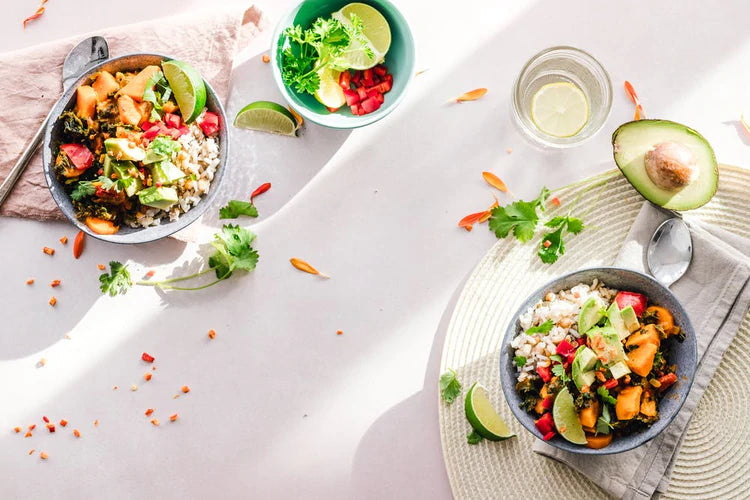
How To Go Vegan
Share
We have all heard the amazing health benefits of going vegan, but if you don't have the right information, it can be very overwhelming and frustrating. If you're considering starting a vegan diet, here are nine tips that can help you transition through this significant change with ease:
1. Know Your Why
You have to know, WHY, you are making the transition? What do you hope to GAIN? If you are not sure why you are making the transition in the first place, you will most likely fall off track in a matter of weeks if not days.
Action: Spend 5-10 minutes thinking about your Why & What you hope to gain by going vegan?
Example: By going Vegan, I'm am taking measures to improve my health, prevent chronic disease, to save the animals. I hope to lose weight, gain energy, and confidence.
2. Educate yourself
There is a lot of information out there, and sometimes it does more harm than good. If possible work with a coach, or sign up/subscribe to favorite blogs or social media pages for daily inspiration as well as information. For example, Forks over Knives & Vegan Community. Look into charities such as Mercy for Animals if your motivation is to save the animals. Learn the benefits of a vegan lifestyle.
3. Start simple and start small
Please don't rush into it. Make gradual changes at a time (like eliminating chicken one week or adding more greens to every meal). Don't give up all of your favorite animal-based foods at once, i.e., cheese. Keep eating it! Make easier changes first. It is going to take some work, but it's worth it. I promise.
4. Remove Temptation
Go through your fridge and pantry, try to remove any animal-based foods you don't eat often. By eliminating bad habits and temptation, you will mentally prepare for new healthy changes.
5. Be Prepared
Stock your kitchen with the healthy, plant foods you want to eat, and it will be harder to lapse into old ways.
Action: If you are cooking, try to plan what you will be cooking in the next 2-3 days and write down the ingredients the meals require. If you need to make substitutions or find alternatives write it down so you can buy it the next time you go grocery, that way when it's time to make your favorite meal, you have everything on hand.
6. Cut down on processed food
Buying processed food because it has a vegan or gluten-free label on it is a common trap that gets many consumers (I used to be one of them). Learn to read labels! A whole-foods, plant-based diet lets you meet your nutritional needs by only eating natural, minimally-processed foods where none of the ingredients come from animals. Limit Processed foods to snacks, drinks, i.e., bars, cookies, crackers, bread, etc. If you are not sure of the difference between whole foods & plant-based. Here is a quick explanation:
- Whole food describes natural foods that are not heavily processed. That means whole, unrefined, or minimally refined ingredients.
- Plant-based means food that comes from plants and doesn’t contain animal ingredients such as meat, milk, eggs, or honey.
7. Find easy and Fun Recipes
Find recipes and cookbooks that you like. Skip the gourmet ones (for now) and go for the ones that are most similar to your cooking/eating style.
8. Cook with others.
Invite friends over for a vegan dinner feast. When making changes in your life, it’s always more comfortable when you involve others.
9. Shopping
Many store's carry vegan options now. Explore different natural stores as well as big supermarkets. You might find something you didn't know existed. Find stores that meet your requirements for convenience and quality. Taking the time to explore will make grocery shopping quick and easy moving forward.
If you want to learn more about the benefits of transitioing to a vegan lifestyle, losing weight, boosting your confidence & energy. Sign up here for more information: https://mailchi.mp/ee5c2e870824/higherstandardhealthcoaching
